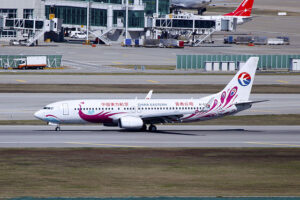-
Global air cargo demand was down 8% in September year-on-year, but is better than the 12.1% year-on-year drop recorded in August
-
Global capacity shrank 25.2% from September last year, nearly three times the contraction in demand and indicating a severe capacity gap
-
Favorable indicators for the peak year-end season will support continued recovery in demand

Global air freight demand strengthened in September but remained depressed compared to 2019 levels, according to the International Air Transport Association (IATA).
Global demand was down 8% from previous-year levels in September (-9.9% for international operations), an improvement from the 12.1% year-on-year drop recorded in August. Month-on-month demand grew by 3.7% in September.
Global capacity shrank by 25.2% in September compared to the previous year.
“That is nearly three times larger than the contraction in demand, indicating a severe lack of capacity in the market,” IATA said.
Improving performance is aligned with improvements in key economic indicators. The new export orders component of the manufacturing Purchasing Managers’ Index rose above the 50 mark, indicating growth, for the first time since mid-2018. The World Trade Organization revised their 2020 trade growth forecast from -12.9% to -9.2%.
“Air cargo volumes are down on 2019, but they are a world apart from the extreme difficulties in the passenger business. For air cargo, 92% of the business is still there, whereas about 90% of international passenger traffic has disappeared,” said Alexandre de Juniac, IATA’s director general and CEO.
“Favorable indicators for the peak year-end season will support the continued recovery in demand. Already North American and African carriers are reporting demand gains on 2019. The challenge continues to be on capacity. As carriers adjust schedules to reflect falling passenger demand amid the resurgence of COVID-19, valuable belly capacity will be lost when it is needed the most,” he said.
By region, Asia-Pacific airlines saw demand for international air cargo fall 14.6% in September 2020 compared to the same month a year earlier, an improvement from the 16.4% fall in August 2020.
Demands on routes between Asia-North America and Asia-Africa were strongest. International capacity remained constrained in the region, down 32%, despite airlines adding more capacity on many routes.
North American carriers returned to pre-crisis levels, posting a 1.5% increase in international demand compared to the previous year—the first month of growth in 10 months. This strong performance was driven by the Asia-North America routes, reflecting e-commerce demand for products manufactured in Asia.
European carriers reported a decrease in demand of 15.7% compared to the previous year. Improvements have been slight but consistent amid recovering economic activity and increasing exports; however, all major routes remained in contractionary territory.
Middle Eastern carriers reported a decline of 2.5% in year-on-year international cargo volumes in September, a significant improvement from the 6.7% fall in August. The region was one of the most severely affected by COVID-19. However, due to regional airlines aggressively adding capacity following the peak of the crisis, it has seen a sharp V-shaped recovery.
Latin American carriers reported a decline of 22.2% compared to the previous year. The region’s weak performance is owing to a severe slowdown in economic activity including trade, rather than insufficient cargo capacity.
African airlines saw demand increase by 9.7% year-on-year in September. This was the fifth consecutive month in which the region posted the strongest increase in international demand. Investment flows along the Africa-Asia route continue to drive the regional outcomes.
Photo by byeangel from Tsingtao, China









